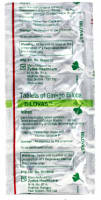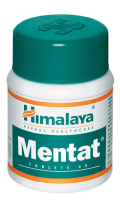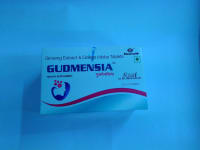
Interaction with alcohol is unknown. Please consult your doctor.

Unknown. Human and animal studies are not available. Please consult your doctor.

No information is available on the use of Maxvert 16mg Tablet during lactation. Please consult your doctor.

SAFE
Maxvert 16mg Tablet does not usually affect your ability to drive.

Maxvert 16mg Tablet is probably safe to use in patients with kidney disease. Limited data available suggests that dose adjustment of Maxvert 16mg Tablet may not be needed in these patients. Please consult your doctor.

There is limited information available on the use of Maxvert 16mg Tablet in patients with liver disease. Please consult your doctor.
Uses of Maxvert Tablet
Maxvert 16mg Tablet is used in vertigo and Meniere's disease.It helps to reduce the episodes of vertigo associated with Meniere's disease.
How to use Maxvert Tablet
Take this medicine in the dose and duration as advised by your doctor. Swallow it as a whole. Do not chew, crush or break it. Maxvert 16mg Tablet is to be taken with food.Betahistine can cause mild stomach problems. Taking it with food can help to minimize stomach upset.
How Maxvert Tablet works
Maxvert 16mg Tablet improves blood flow in the inner ear which reduces the pressure of excess fluid in the inner ear.
Common Headache, Nausea, Dyspepsia.
Expert advice for Maxvert Tablet
Maxvert can only decrease the number and severity of attacks of vertigo (dizziness), hearing loss and tinnitus (noise in the ear), it will not completely stop them. You may need to take Maxvert for 6-12 months to see if it helps to relieve your symptoms. If it helps, then you can continue to use it. Do not take Maxvert if you have a history of hypersensitivity to betahistine or you have pheochromocytoma, a rare tumor of adrenal glands. Take special care and inform your doctor if you have
History of porphyria
Peptic ulcer
Asthma
Low blood pressure
Hereditary problem of intolerance to some sugars
History of allergic reactions
Q. Is Maxvert useful for the treatment of a migraine associated vertigo?
Maxvert is seen to be useful in the treatment of vertigo associated with a migraine in some clinical studies. However, this is not an approved use and it should be taken only when advised by a doctor. It is indicated for the treatment of vertigo, tinnitus and hearing loss associated with ménière's syndrome.
Q. Can I use Maxvert for the treatment of benign Paroxysmal Positional Vertigo?
Use of Maxvert is seen to provide long-term relief and good clinical outcomes in patients with paroxysmal positional vertigo when used along with physical maneuver. It is also seen to be beneficial in patients who are unfit or are unable to do the physical maneuvers.
Q. Can I take Maxvert with paracetamol?
Maxvert can be taken with paracetamol. There are no reported drug drug interactions or harmful effects when they are used together.
Q. Is Maxvert addictive?
No, addictive potential has not been reported with Maxvert. It shows no withdrawal symptoms when you stop using this medicine.
Q. Is Maxvert good for dizziness?
Maxvert is not indicated for the treatment of dizziness. It is caused by breathing too heavily (hyperventilation) or anxiety. Many a times patient confuse dizziness with vertigo (spinning sensation). It is only indicated for the relief of vertigo, tinnitus (ringing sensation in the ear) and hearing loss associated with Meniere's disease.
Q. Is it safe to take Maxvert with propranolol?
Maxvert and propranolol can be taken together. Maxvert is given in patients with a migraine for the relief of vertigo and propranolol is indicated for preventing the attacks of a migraine. No harmful side effects or any other clinical interactions have been seen when the two drugs are used together.
Q. Does Maxvert make you sleepy?
Maxvert does not make you sleepy. Common side effects seen with its use are a headache, nausea, and dyspepsia.
Q. Is Maxvert available over the counter?
No, Maxvert is not an over the counter medicine. It is available with doctor's prescription only.
Q. Can I take Maxvert with prochlorperazine?
Maxvert and prochlorperazine can be taken together. No harmful side effects or any other clinical interactions have been seen when the two drugs are taken together.
Q. Can Maxvert cause an increase in blood pressure?
Maxvert has not shown to cause an increase in blood pressure. Rather, it can cause a small fall in blood pressure due to its property to dilate blood vessels. Common side effects seen with its use are a headache, nausea, and dyspepsia.
Q. Why is the use of Maxvert contraindicated in patients with pheochromocytoma?
Pheochromocytoma is an adrenal gland tumor and it causes excessive release of hormones like epinephrine and norepinephrine that control heart rate, metabolism, and blood pressure. Maxvert may provoke the release of hormones like epinephrine and norepinephrine from the site of this tumor and cause a hypertensive crisis which can be life threatening.
Q. When should I stop taking Maxvert?
Do not stop taking Maxvert until you are asked by your doctor to do so. Keep taking it for as long as your doctor has asked you to. You may need to take Maxvert up to 6 months or more for the right effect to come.
Q. Can I use Maxvert for motion sickness?
No, Maxvert is not indicated for the treatment of motion sickness as the present clinical data has not proven its efficacy. Motion sickness is a feeling of nausea and lightheadedness when you travel by train, car or by plane. Maxvert is used for decreasing the episodes of recurrent vertigo (spinning sensation) associated with Ménière’s disease (an ear disease).
Q. Is Maxvert useful in the treatment of anxiety?
No, Maxvert is not indicated for the treatment of anxiety. It is a histamine analog indicated for decreasing the episodes of recurrent vertigo (spinning sensation) associated with Ménière’s disease (an ear disease).
Q. Would Maxvert be useful for treating an ear infection?
No, Maxvert is not indicated for the treatment of ear infection as it has no antibiotic action. It is a histamine analog indicated for decreasing the episodes of recurrent vertigo (spinning sensation) associated with Ménière’s disease (an ear disease).
Q. Can I take Maxvert with antibiotics?
Maxvert and antibiotics can be taken together. No harmful side effects or any other clinical interactions have been seen when Maxvert is taken with antibiotics. However, interactions may exist as there is a large number of Flunarizine with different actions and they can have different effects. So, talk to your doctor before using them together.
Q. Is Maxvert an antihistamine?
No, Maxvert is not an antihistamine. It has a histamine-like action which helps in improving blood flow in the inner ear and decreasing vertigo, tinnitus, hearing loss, and nausea.
Q. Can I take Maxvert with antihistamine medicines?
Maxvert should not be taken with antihistamine medicines like dimenhydrinate as Maxvert has histamine like action. Using the two medicines together which have opposite actions may actually lower the efficacy of both the medicines.
Q. Can I take Maxvert with ibuprofen?
Maxvert can be taken with ibuprofen. There are no reported drug-drug interactions or harmful effects when they are used together.
Q. Does Maxvert cause weight gain?
Use of Maxvert has not shown to cause weight gain. Common side effects seen with its use are a headache, nausea, and dyspepsia.
Q. Is Maxvert safe?
Maxvert is safe if used for a prescribed duration in doses as prescribed by your doctor. However, there are some very common side effects that you can experience at effective doses with its use like headache, nausea, and dyspepsia.
Q. Can I take Maxvert with vitamin D?
Maxvert and vitamin D can be taken together. No harmful side effects or any other clinical interactions have been seen when the two drugs are taken together.
Q. Can I take Maxvert with cetirizine?
Maxvert should not be taken with cetirizine as it has antihistamine action and Maxvert has histamine like action and using the two medicines together may lower the efficacy of either of them.
Q. Can I use Maxvert for nausea?
Maxvert is useful in the treatment of nausea and vertigo associated with an underlying ear disease like Meniere's disease. It is also seen to be useful in vertigo associated with a migraine.
Q. Would Maxvert be useful for treating labyrinthitis?
Maxvert does not treat labyrinthitis, however, it is useful in relieving the symptoms associated with labyrinthitis which includes dizziness, loss of balance, nausea, vomiting, tinnitus, and vertigo.
Q. When does Maxvert start working?
The maximum level of Maxvert is achieved within one hour of oral intake. However, you would start to feel relief in your symptoms in less time.
Q. Can use of Maxvert make you lose weight?
Maxvert has not shown to cause any weight loss. Common side effects seen with its use are a headache, nausea, and dyspepsia. In case you experience any abnormal weight loss while taking Maxvert, consult your doctor as it may be due to an underlying condition that needs attention.
Q. Does Maxvert cause headache?
Yes, headache is a commonly reported side effect of Maxvert. You can take a painkiller like paracetamol or ibuprofen for the relief of your headache. However, if it is very severe and is not controlled by a painkiller, consult your doctor as Maxvert may need a dose adjustment.
Q. Can I take Maxvert with warfarin?
Maxvert and warfarin can be taken together. No harmful side effects or any other clinical interactions have been seen when the two drugs are taken together.
Q. Is Maxvert a steroid?
No, Maxvert is not a steroid. It is a histamine analog used to treat vertigo, tinnitus and hearing loss associated with Ménière's syndrome
Q. Can I take Maxvert with amitriptyline?
Maxvert has not been clinically studied when used along with amitriptyline. So there are no reports of any drug-drug interactions or harmful effects when these are used together.
Q. Does Maxvert cause drowsiness?
Maxvert has not been reported to cause drowsiness. Common side effects seen with its use are a headache, nausea, and dyspepsia.
Q. Is Maxvert a beta blocker?
No, Maxvert is not a beta blocker. It is a histamine analog used to treat vertigo, tinnitus and hearing loss associated with Ménière's syndrome. It can cause a small fall in blood pressure due to its property to dilate blood vessels.
Q. Is Maxvert a diuretic?
No, Maxvert is not a diuretic. It is a histamine analog used to treat vertigo, tinnitus and hearing loss associated with Ménière's syndrome. A diuretic is a medicine, which removes excess water and electrolytes from the body through urine.
Q. Is Maxvert a blood thinner?
No, Maxvert is not a blood thinner. It is a histamine analog used to treat vertigo, tinnitus and hearing loss associated with Ménière's syndrome.
Q. Can I take Maxvert with propranolol?
Maxvert and propranolol can be taken together. No harmful side effects or any other clinical interactions have been seen when the two drugs are taken together.
Blubell Pharma
₹4.4/Tablet Out of stock


 Maxvert 16mg Tablet
Maxvert 16mg Tablet  Bookmark
Bookmark




















